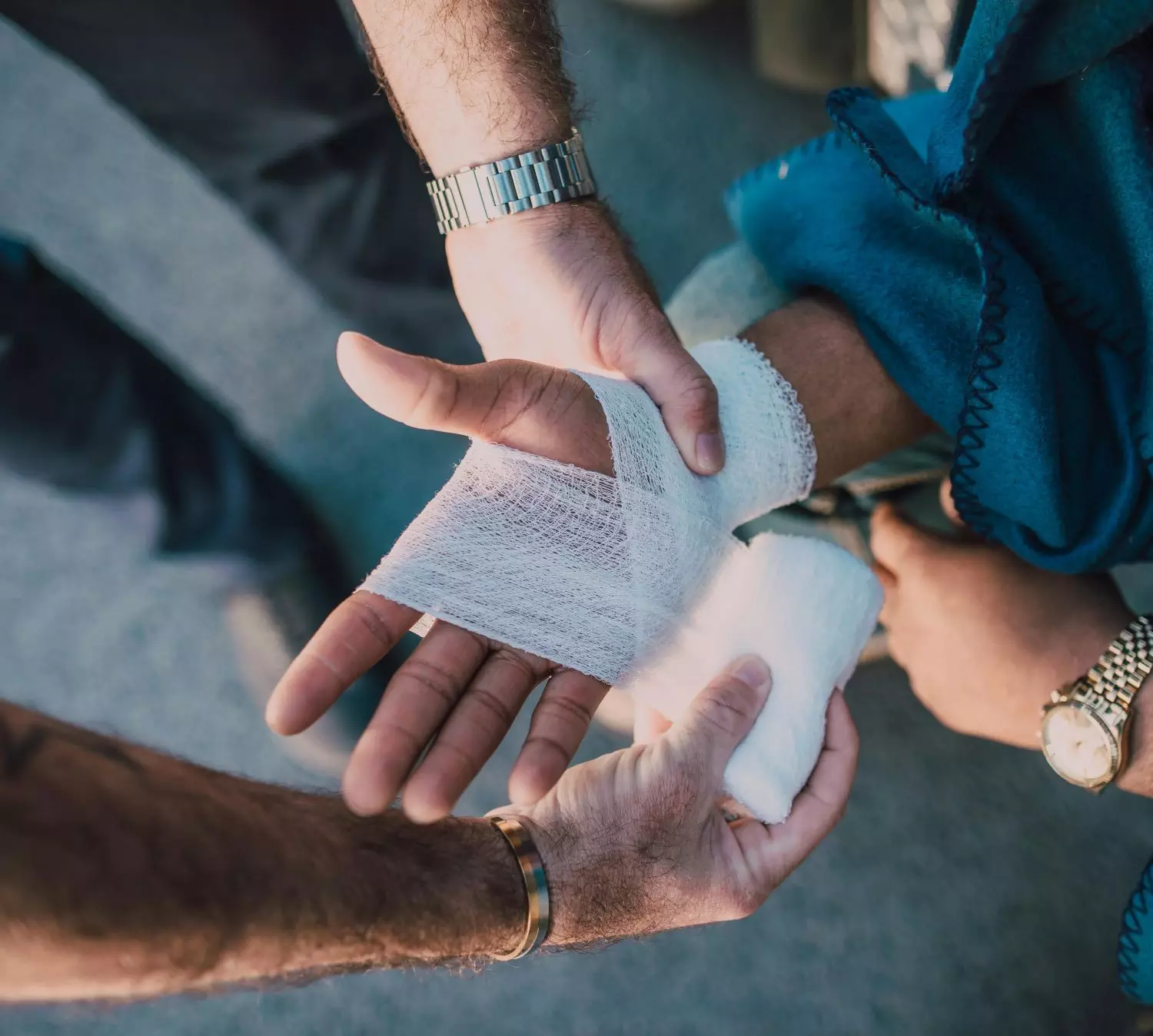

Contingency fees allow you to hire a personal injury lawyer without paying any legal fees upfront. You’ll only owe the lawyer a percentage of your settlement if you win your case. This arrangement makes legal representation accessible to everyone regardless of financial status. It also motivates your injury lawyer to work hard for a favourable outcome since their payment depends on your success. Typically, our fee is 33% of your total recovery, regardless of when the claim resolves. You may be responsible for additional expenses called disbursements.
Discussing all potential costs with your lawyer before signing an agreement is extremely important. Understanding the details can help you make an informed decision about your legal representation. Let’s dive in.
Contingency fees are a payment arrangement in which you don’t pay your lawyer upfront; instead, they’ll take a percentage of your settlement or court award if you win your case. This fee structure is common in accident injury cases such as motor vehicle accident cases, making legal representation fully accessible to those who might not otherwise afford it.
When you’ve been injured in an accident and need to hire a lawyer on a contingency basis, you’re basically sharing the risk of your case. If you don’t win, you typically won’t owe the lawyer for their time. However, it’s important to understand that you may still be responsible for disbursements – out-of-pocket expenses incurred during your case, such as court filing fees or expert witness costs.
The percentage that most personal injury lawyers in Alberta charge is typically 33% of your settlement. This amount is fixed regardless of the complexity of your case and how far it progresses.
Before signing an agreement, make certain you understand exactly what’s covered and how disbursements are handled. This will help you avoid surprises and confirm you’re comfortable with the arrangement.
You’ll find several advantages when opting for this type of arrangement with your Edmonton injury lawyer. These benefits include easier access to legal representation, no need for upfront costs, and a shared financial risk between you and your attorney. Additionally, you’ll benefit from your lawyer’s increased motivation to win your case and a simplified payment structure that’s easy to understand.

Essentially, contingency fees make justice more accessible to everyone.
Why are “no win, no fee” arrangements beneficial for those seeking justice after a personal injury? They open the door to legal representation for many who might otherwise be unable to afford it.
When you’re dealing with an injury case, the last thing you need is the added stress of upfront legal fees. That’s where results-based agreements come in handy. You don’t have to worry about paying your lawyer unless you win your case. This means you can focus on your recovery while your legal team works on getting you the compensation you deserve.
Many accident injury lawyers offer a free consultation to assess your case. This gives you the chance to discuss your situation without any financial commitment. If you decide to move forward, you’ll sign an agreement that outlines how your lawyer will be paid if your case is successful.
This arrangement levels the playing field, allowing you to access high-quality legal representation regardless of your financial situation. It also motivates your lawyer to work hard on your behalf, as their payment depends on the outcome of your case.
Financial barriers crumble when you opt for a contingency fee arrangement with your personal injury lawyer. This ‘no win, no fee’ structure means you don’t have to worry about upfront costs, making legal representation accessible to everyone regardless of their financial situation.
When you hire a Safi Law Group lawyer on a contingency fee basis, you’re not required to pay any fees unless your case is successful. This arrangement allows you to focus on your recovery while your lawyer handles the legal complexities. Here’s what you can expect:
The Court of King’s Bench regulates contingency fee agreements to guarantee fairness. Your lawyer will explain the terms clearly, including the agreed-upon percentage and any potential disbursements. This transparency helps you understand the financial aspects of your case from the start.
By opting for a contingency fee arrangement, you’re entering a partnership in which you and your lawyer share the financial risk of pursuing your case. This shared risk is an essential benefit of the contingent fee structure, as it aligns your interests with those of your attorney.
Understanding this arrangement is pivotal. Your lawyer invests their time, expertise, and resources upfront without any guarantee of payment. They’ll only receive a percentage of your settlement or award if your case is successful. This means they’re motivated to work diligently on your behalf, as their compensation depends on a positive outcome.
This shared risk translates to reduced financial stress. You won’t have to worry about upfront legal fees or ongoing expenses during your case. This can be particularly beneficial if you’re already dealing with medical bills or lost wages due to your injury.
It’s important to remember that while you’re not paying out-of-pocket for legal services, you’ll still be responsible for a portion of your settlement. Make sure you’re comfortable with the agreed-upon percentage before proceeding, and don’t hesitate to ask questions about how the fee structure works.
Contingency fee arrangements provide injury lawyers with powerful incentives to achieve the best possible outcome for their clients. When lawyers charge on a contingency basis, their fee is directly tied to the success of your case. This creates a strong motivation for them to work diligently and efficiently on your behalf.
The benefits of this system include:
This fee structure encourages reflective practice among lawyers as they must carefully consider the potential value and challenges of each case. It’s a win-win situation: you don’t pay unless you win, and your lawyer is motivated to secure the best possible outcome. This arrangement also allows access to quality legal representation for those who might not otherwise be able to afford it. By sharing the risk and potential reward, contingency fees create a partnership between you and your lawyer, ensuring that both parties are invested in the success of your personal injury claim.
Beyond motivating lawyers, contingency fee arrangements offer a simplified payment structure that’s easy for clients to understand and manage. The last thing you need is a complicated billing arrangement. With a contingency fee, you don’t have to worry about hourly rates or retainers. Instead, you’ll only pay your lawyer if they win your case.
Here’s how it works: If your case is successful, your lawyer will take a pre-agreed percentage of your settlement. This percentage is 33% of your total recovery, regardless of when the claim resolves. You won’t have to pay anything upfront, so you can focus on your recovery without financial stress.
It’s important to note that while the lawyer’s fee comes from your settlement, you may still be responsible for disbursements. These are expenses related to your case, such as court filing fees or expert witness costs. Your lawyer should explain how these are handled in your agreement. Overall, contingency fees make legal representation accessible, allowing you to pursue justice without worrying about immediate out-of-pocket expenses.
It’s important to understand the basics of “No Win, No Fee” calculations. Your lawyer will typically outline the fee structure in a contingency agreement, which specifies the percentage they’ll receive from your settlement or court award.
Here’s what you need to know about contingency fee calculations:
Discussing fee calculations and potential costs with your lawyer during your initial consultation is crucial. They should explain how disbursements are handled and any additional expenses you might incur. Remember, you’re only responsible for paying the contingency fee if your case is successful. This arrangement allows you to pursue your claim without upfront legal costs, making justice more accessible for those who’ve suffered injuries.
Now that you understand how contingency fees are calculated, let’s examine what legal services are typically covered by these agreements. You usually get an all-inclusive legal service package when you sign a contingency fee agreement for your injury claim. These services often include:
| Legal Service | Description | Typically Covered |
| Case Evaluation | Initial assessment of your claim | Yes |
| Legal Advice | Ongoing guidance throughout the process | Yes |
| Document Preparation | Drafting legal documents and filings | Yes |
| Negotiations | Representing you in settlement talks | Yes |
| Court Representation | Advocating for you in court if necessary | Yes |
It’s important to note that while these core legal services are typically included, disbursements (out-of-pocket expenses) may be handled separately. These can include costs for medical records, expert witnesses, or court filing fees. Your lawyer should clearly explain how disbursements are treated in your agreement.
In addition to legal fees, you’ll need to consider how disbursements and expenses are handled in your contingency fee agreement. These costs are separate from the lawyer’s fee and typically cover various out-of-pocket expenses incurred during your case.
Your lawyer should clearly explain how disbursements and expenses will be managed. The law firm will typically cover these costs upfront and recover them from your settlement. It’s essential to understand which expenses you’ll be responsible for regardless of the case outcome. Some typical disbursements include:
Transparency is key when it comes to handling these additional costs. Your lawyer should provide a detailed breakdown of expected disbursements and keep you informed of any significant expenses as your case progresses. Don’t hesitate to ask questions about how these costs are calculated and when you’ll be expected to reimburse them.
Several key elements can greatly influence the final costs associated with your injury case when working with a lawyer on a contingency fee basis. The complexity of your case plays a significant role, as more intricate situations often require more time and resources from the law firm. The experience of your attorney can also impact costs, as highly skilled lawyers in personal injury law may charge higher percentages due to their expertise and track record.
The severity of your injuries and the extent of damages you’re seeking will affect the final costs. Cases involving substantial compensation typically result in higher contingency fees. The stage at which your case is resolved is another vital factor. If it’s settled quickly, you’ll likely pay less than if it goes to trial.
Your retainer agreement’s specific terms can also impact costs. Some agreements may include sliding scales based on the case’s progression or outcome. Additionally, the strength of evidence in your case can influence costs, as stronger cases may lead to quicker resolutions and potentially lower fees. Understanding these factors will help you better navigate the financial aspects of your case.
Transparency in fee structures is essential when working with a lawyer on a contingency basis. You’re entitled to a clear understanding of how your lawyer’s fees will be calculated and what costs you might incur. During your initial consultation, your lawyer should provide a detailed explanation of their contingency fee agreement, including:
Don’t hesitate to ask questions about fee calculations or any terms you don’t understand. A reputable lawyer will be happy to explain everything in plain language. They should also provide you with a written agreement that outlines all the details discussed.
Can I negotiate the contingency fee percentage with my lawyer?
Yes, you can negotiate the contingency fee percentage with your lawyer. Discussing and agreeing on the fee structure before signing the agreement is important. Lawyers may be open to negotiation, especially if the case is straightforward or highly likely to succeed. Always ensure that your contingency fee agreement clearly documents any agreed-upon changes.
What happens if my case settles for less than anticipated?
If your case settles for less than anticipated, the contingency fee will still be a percentage of the actual settlement amount. However, disbursements and other costs may still need to be paid. Understanding how these costs are handled and ensuring they are proportionate to the settlement received is essential.
Is the contingency fee percentage the same for all stages of a case?
No, the contingency fee percentage can vary depending on the stage at which your case is resolved. For example, if your case settles quickly, the fee might be lower compared to if it goes to trial or requires an appeal. Make sure your agreement specifies the fee percentages for different stages of the legal process.
Can the contingency fee agreement be modified after it has been signed?
Generally, a contingency fee agreement can be modified after signing only with the mutual consent of both the lawyer and the client. Any modifications should be documented in writing and signed by both parties. Communicating openly with your lawyer is important if you feel adjustments are needed.
What should I do if I disagree with the final fee calculation?
If you disagree with the final fee calculation, first discuss your concerns with your lawyer. If the issue remains unresolved, you can seek assistance from the [Court of King’s Bench, which has a process to review a lawyer’s invoice.] Keeping clear records of all communications and agreements can support your case.
Are contingency fees taxable?
Most injury settlements in Canada are non-taxable. However, it’s advisable to consult with a tax professional to understand the tax implications of your settlement and ensure compliance with Canadian tax laws.
How are contingency fees handled in the event of an appeal?
If your case goes to appeal, the contingency fee agreement should specify how fees are handled. Often, fees may increase due to the additional work required. Ensure that your agreement outlines the fee structure for appeals to avoid any surprises.
Do contingency fees cover all types of personal injury cases?
While contingency fees are common in many personal injury cases, they may not be applicable for all types. For example, some lawyers may not accept medical malpractice or product liability cases on a contingency basis due to their complexity and high costs. Always confirm with your lawyer whether your specific case type is covered under a contingency fee arrangement.
What should I look for in a contingency fee agreement to ensure fairness and transparency?
To ensure fairness and transparency in a contingency fee agreement, look for the following:
If you’ve experienced a personal injury and need seasoned legal assistance, don’t hesitate to contact us. Call us at (780) 760-7234 or visit our contact us page to schedule a consultation today. Your path to justice and fair compensation starts with a simple conversation.

